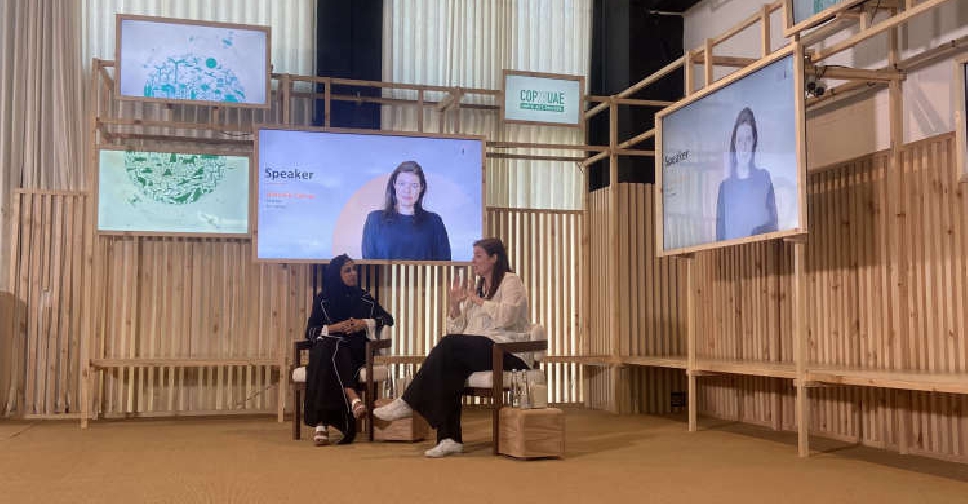
With the world at our doorstep for the duration of COP28, most of the headlines feature presidents and international CEOs, but it’s also a chance for our UAE-based programmes and organisations to share their ideas more widely.
The National Experts Programme (NEP) is offering local thought-leaders the platform to discuss their sustainability agenda right here at the UN climate conference.
The director of Jameel Arts Centre, Antonia Carver, is one such local leader, who took the stage on Saturday, at the UAE Pavilion to share her insights on how a community arts organisation is working towards net zero.
One of the most exciting aspects is the Centre’s membership of the World Weather Network, as one of 28 arts organisations forming a global weather reporting project.
Jameel’s weather station explores atmospheric humidity which is a key indicator of climate in the Arabian Gulf and not only does the humidity project provide data to the global network, it provides drinking water to the Centre's visitors.
Carver explains their ‘air-to-water generators’ convert ambient moisture to fresh water which is distributed through the gallery’s public spaces.
The Centre's gardens also feature only native plant species, which are by nature, less thirsty and more suited to local conditions than the lush tropical palms and vines we are used to seeing in curated spaces.
Being an arts organisation Carver says one of their priorities is to help reframe visitors’ visual perceptions of what gardens should look like.
Jameel’s annual sustainability festival ‘Down to Earth’ has been a key marker of success in community engagement.
“From last year’s event to this year’s event we’ve seen a 50 percent increase in attendance,” says Carver, relating it to the nation’s focus on sustainability in the lead-up to COP28.
Local partnerships are another priority for the organisation, Carver says “the climate crisis relies completely on collaboration, it’s not a competitive field”.
They have worked with Dubai’s Roads and Transport Authority (RTA) on creating carbon scores for transportation. Dubai Electricity and Water (DEWA) have also provided data and feedback on energy consumption.
One of the upshots of the electricity study was the decision to turn lights off at midnight, rather than light the building facades right through the night like we became accustomed to seeing here in Dubai.
Ultimately, says Carver, they are focused on incremental change, year-on-year.
They’re working on a broader scale too, lobbying the international arts industry to think of new ways to lower the carbon footprint of touring exhibitions, while balancing the desire for local communities around the world to experience art in person.




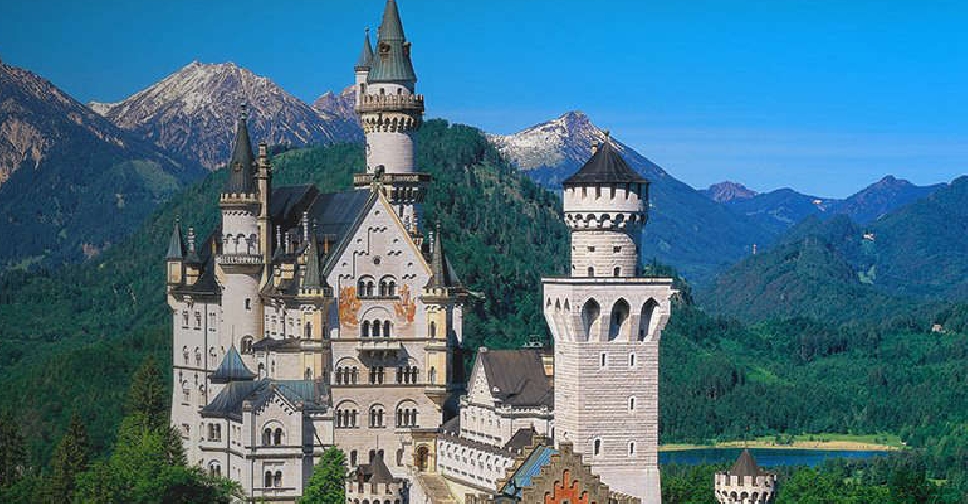 Bavaria's fairy-tale palaces granted world heritage status
Bavaria's fairy-tale palaces granted world heritage status
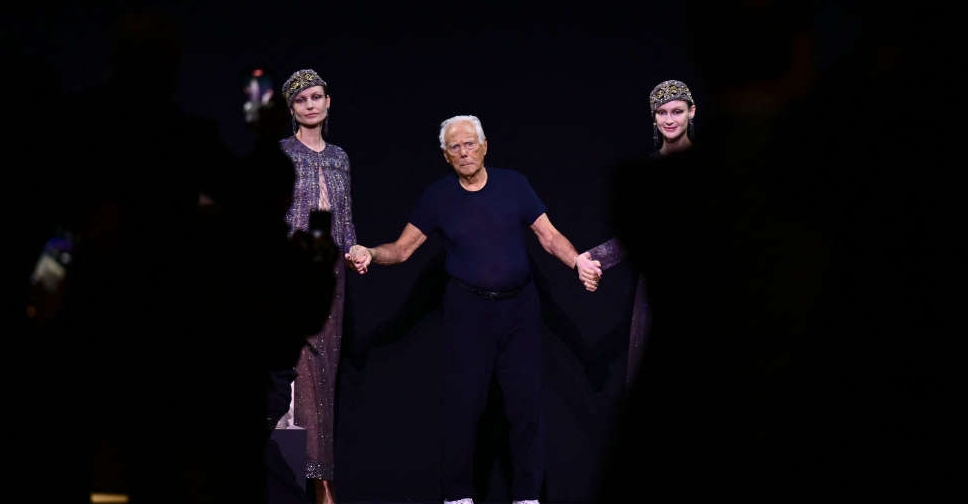 Recovering Giorgio Armani says he will be back in September
Recovering Giorgio Armani says he will be back in September
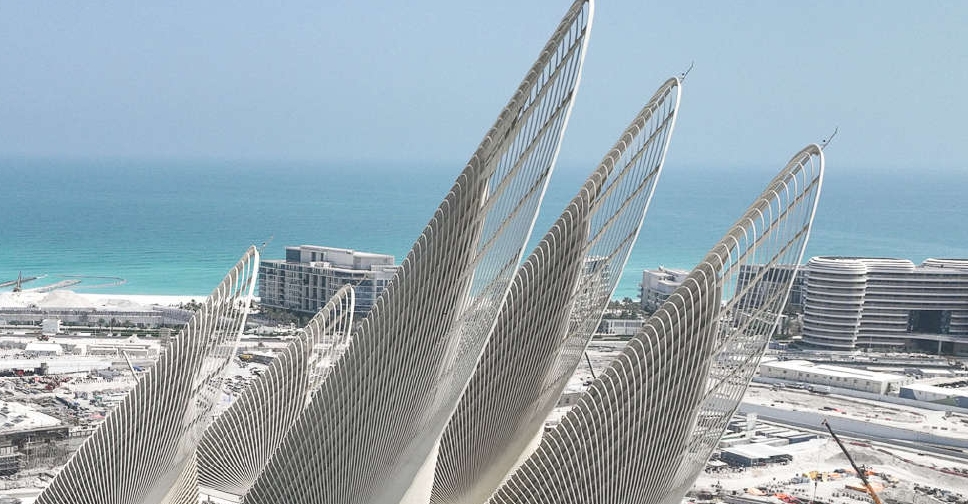 Zayed National Museum to officially open its doors in December
Zayed National Museum to officially open its doors in December
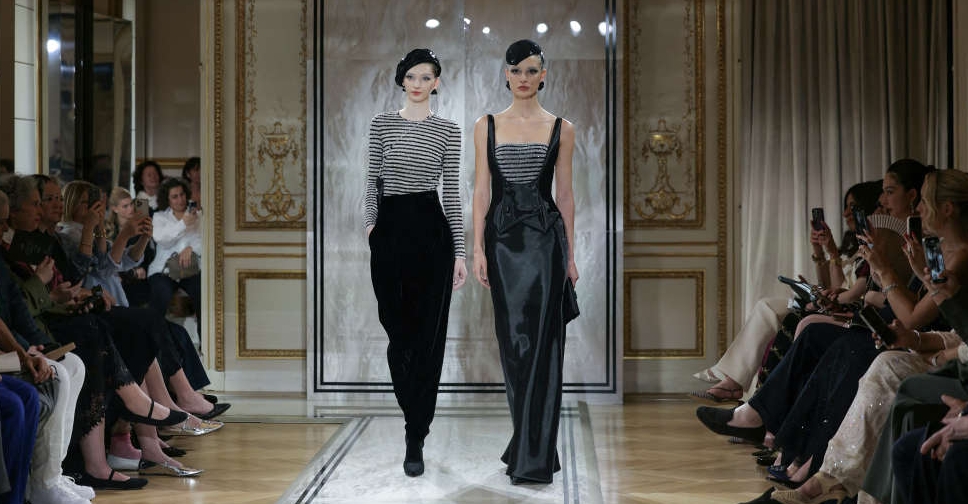 Giorgio Armani Prive shows glittering black velvet on Paris runway
Giorgio Armani Prive shows glittering black velvet on Paris runway


